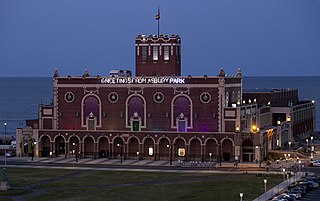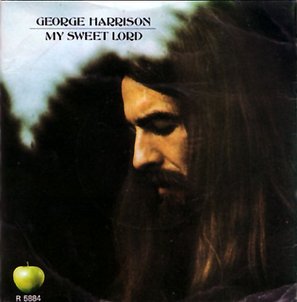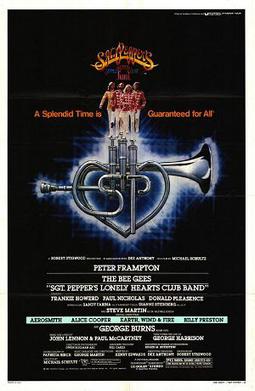
Asbury Park is a beachfront city located on the Jersey Shore in Monmouth County in the U.S. state of New Jersey. It is part of the New York metropolitan area. As of the 2020 United States census, the city's population was 15,188, a decrease of 928 (−5.8%) from the 2010 census count of 16,116, which in turn reflected a decline of 814 (−4.8%) from the 16,930 counted in the 2000 census.

Deal is a borough situated on the Jersey Shore within Monmouth County, in the U.S. state of New Jersey. The community was settled by Europeans in the mid-1660s and named after an English carpenter from Deal, Kent. As of the 2020 United States census, the borough's population was 900, an increase of 150 (+20.0%) from the 2010 census count of 750, which in turn had reflected a decline of 320 (−29.9%) from the 1,070 counted in the 2000 census.

Peter and Gordon were a British pop duo, composed of Peter Asher and Gordon Waller (1945–2009), who achieved international fame in 1964 with their first single, the million-selling "A World Without Love". The duo had several subsequent hits in America in the British Invasion era, including "I Go to Pieces", "Lady Godiva", "Woman", "True Love Ways" and "Nobody I Know".
Apple Records is a British record label founded by the Beatles in 1968 as a division of Apple Corps Ltd. It was initially intended as a creative outlet for the Beatles, both as a group and individually, plus a selection of other artists including Mary Hopkin, James Taylor, Badfinger, and Billy Preston. In practice, the roster had become dominated by the mid-1970s with releases of the former Beatles as solo artists. Allen Klein managed the label from 1969 to 1973, then it was managed by Neil Aspinall on behalf of the Beatles and their heirs. Aspinall retired in 2007 and was replaced by Jeff Jones. Jones stepped down on October 21st, 2024.

Mary Hopkin, credited on some recordings as Mary Visconti from her marriage to Tony Visconti, is a Welsh singer best known for her 1968 UK number 1 single "Those Were the Days". She was one of the first artists to be signed to the Beatles' Apple label.

Monmouth University is a private university in West Long Branch, in the U.S. state of New Jersey. Founded in 1933 as Monmouth Junior College, it became Monmouth College in 1956 and Monmouth University in 1995 after receiving its charter. It enrolls about 4,400 full-time and 260 part-time undergraduate and 1,750 graduate students and employs 302 full-time faculty members.

The Smithereens are an American rock band from Carteret, New Jersey. The group formed in 1980 with members Pat DiNizio, Jim Babjak, Mike Mesaros, and Dennis Diken. This original lineup continued until 2006, when Mesaros left the band and Severo Jornacion took over on bass guitar until Mesaros' return in 2016. After DiNizio died in 2017, the band continued performing live shows as a trio with various guest vocalists.

"My Sweet Lord" is a song by the English musician George Harrison, released in November 1970 on his triple album All Things Must Pass. It was also released as a single, Harrison's first as a solo artist, and topped charts worldwide; it was the biggest-selling single of 1971 in the UK. In America and Britain, the song was the first number-one single by an ex-Beatle. Harrison originally gave the song to his fellow Apple Records artist Billy Preston to record; this version, which Harrison co-produced, appeared on Preston's Encouraging Words album in September 1970.

Sgt. Pepper's Lonely Hearts Club Band is a 1978 American jukebox musical comedy film directed by Michael Schultz, written by Henry Edwards and starring an ensemble cast led by Peter Frampton and the Bee Gees. Depicting the loosely constructed story of a band as they wrangle with the music industry and battle evil forces bent on stealing their instruments and corrupting their hometown of Heartland, the film is presented in a form similar to that of a rock opera, with the songs providing "dialogue" to carry the story. George Burns has most of the spoken lines that act to clarify the plot and provide further narration but there are a few other lines throughout the movie.

John Lyon, known professionally as Southside Johnny, is an American retired singer-songwriter who fronted the band Southside Johnny and the Asbury Jukes.

Peter Asher is an English guitarist, singer, manager and record producer. He came to prominence in the 1960s as a member of the pop music vocal duo Peter and Gordon before going on to a successful career as a manager and record producer, helping to foster the recording careers of James Taylor and Linda Ronstadt among others. As of 2018, he tours alongside Jeremy Clyde of Chad and Jeremy in a new duo entitled Peter and Jeremy, where they perform hits from both of their respective catalogues. In 2019, Asher published a book The Beatles from A to Zed about his personal reminiscences about the band.

The Cyrkle was an American rock band active in the early and mid-1960s. The group charted two Top 40 hits, "Red Rubber Ball" and "Turn-Down Day".

Glen Burtnik is an American singer, songwriter, entertainer and multi-instrumentalist, best known as a former member of Styx. Burtnik is originally from North Brunswick, New Jersey, in the Raritan Bayshore, of the larger Jersey Shore and lives in Asbury Park, New Jersey. Burtnik has written hit songs for Randy Travis, Patty Smyth and Don Henley. The spelling of his name has shortened a few times over the years.

"One Fine Day" is a song written by Gerry Goffin and Carole King. It first became a popular hit in the summer of 1963 for American girl group the Chiffons, who reached the top five on the Billboard Hot 100 chart. In 1980, King covered it herself and charted at No. 12 on the Hot 100 with her version, becoming her last top 40 hit. The song has subsequently been covered by numerous artists over the years.
Asbury Park High School is a comprehensive, community public high school serving students in seventh through twelfth grades. It is in a landmark building in Asbury Park, in Monmouth County, in the U.S. state of New Jersey, that was constructed during the New Deal as a model high school campus. It is part of the Asbury Park Public Schools, an Abbott District serving children in pre-kindergarten through twelfth grade. The current school building opened to students in September 1926.
William Gussak (1920–1994) was an American jazz and recording session drummer, best known for being the drummer on the classic 12 April 1954 recording of "Rock Around The Clock" by Bill Haley and His Comets. Some sources incorrectly spell his name as Guesak.
Ronald Augustus Mack was an American songwriter, singer and talent manager who wrote "He's So Fine", a number one chart hit in 1963 for the Chiffons and the apparent inspiration for George Harrison's "My Sweet Lord". Mack's early death inspired Holland, Dozier and Holland to write the song "Jimmy Mack".
The Castiles were a garage rock band that featured vocalist/lead guitarist/harmonica player Bruce Springsteen, and was formed by rhythm guitarist/vocalist George Theiss, with various lineups during its existence. They recorded two songs, and performed throughout New Jersey and New York before disbanding in 1968.

Julian Fulton is an American songwriter and multi-instrumentalist from New Jersey. He is known for incorporating multiple musical styles into a unique brand of indie rock. When performing or recording with a full band, Fulton and fellow musicians are known as Julian Fulton and the Zombie Gospel. Fulton has been compared to acts like The Beatles, Beck, Grizzly Bear (band), Wilco, The Beach Boys, Tame Impala, and many others.

Got Back was a concert tour by English musician Paul McCartney. The tour started on 28 April 2022 at the Spokane Arena in Spokane, United States, and ended on 19 December 2024 at the O2 Arena in London, England. The tour was McCartney's first following the COVID-19 pandemic that resulted in the cancellation of a planned European leg of his Freshen Up tour in 2020, which included a planned performance at Glastonbury Festival. McCartney performed at Glastonbury on 25 June 2022, as a conclusion to the first leg of the Got Back tour.














